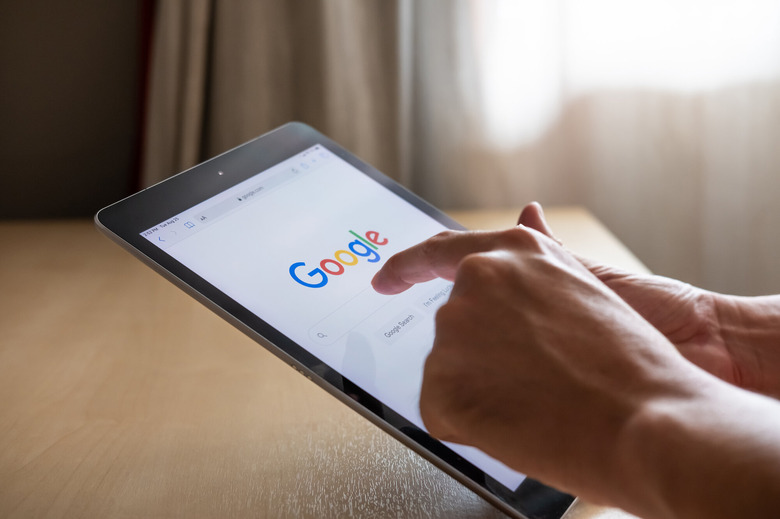We Might Know Why Google Stopped Updating Its iPhone Apps
- Apple's newly released app privacy labels for iPhone and iPad apps caused quite a stir. Facebook publicly attacked the iPhone maker and said that the iOS 14 feature hurts small businesses and the free internet.
- Facebook has updated its apps with privacy labels, showing the incredible amount of data a chat app like Facebook Messenger collects compared to iMessage, Signal, and WhatsApp.
- Google hasn't updated any of its iPhone apps in nearly a month, since Apple started asking developers to fill in their app privacy labels.
The Facebook vs. Apple privacy squabble was one of the highlights of late 2020 in the technology industry. The new app privacy labels act like the nutrition labels you're used to seeing on food and drinks. Developers have to list the user data their apps can collect or track and ask users for permissions.
The feature was released via an iOS 14 update after being announced last June at WWDC. Facebook made a big deal about Apple's move, accusing the iPhone maker of hurting small businesses and the free internet. In turn, Facebook received criticism from users, its employees, and the EFF. The latter even called upon Google to follow Apple's lead and launch a similar feature for Android.
If Facebook isn't happy with Apple's privacy labels that inform people of all the ways they're being tracked, Google can't be happy either. But Google is in a strange place. On the one hand, it has to collect user data and track users online to continue to turn a profit from ads. On the other hand, Google has been following iOS in recent years, turning Android into a mobile OS that limits data tracking and secures user privacy. Google has not publicly criticized Apple's iOS 14 privacy labels like Facebook did, but the company's silence speaks volumes. Especially considering it hasn't updated its iPhone and iPad apps since Apple rolled out the privacy feature.
As Facebook already made clear during its attack, developers have to comply with the new privacy rule or risk having their apps removed. "We disagree with Apple's approach and solution, yet we have no choice but to show Apple's prompt," Facebook said in mid-December. "If we don't, they will block Facebook from the App Store, which would only further harm the people and businesses that rely on our services. We cannot take this risk on behalf of the millions of businesses who use our platform to grow."
A Fast Company report points out that Google hasn't updated its apps in weeks, speculating that the privacy labels might be the reason for the extensive delay.
"Not a single one of Google's iOS apps have been updated in almost a month—an unusually long period for a tech behemoth not to release, at the very least, even a minor bug fix or stability update for one of its dozens of insanely popular iPhone and iPad apps," the blog points out. The last time Google updated an iOS app was on December 7th, when apps like Google Drive, YouTube, Google Docs, Google Sheets, YouTube Music, Google Duo, Google Authenticator, and Gboard got updates.
As of December 8th, Apple requires all developers to submit privacy labels. As we've already seen with Facebook Messenger, Facebook is collecting an incredible amount of user data. Google's apps might have similarly sized privacy labels, considering that Google has always collected tons of user data, occasionally resulting in privacy scandals.
This might be a coincidence. 2020 has been a tough year for everyone, and December was as awful as any month. The novel coronavirus surged to record figures just as the holidays arrived. This could explain Google's delay. Facebook's attack on Apple certainly did not help Google. Once its privacy labels do appear, the inevitable comparisons between Facebook and Google will follow.
Google can't postpone app updates forever. Once those updates are filed, they'll have to include privacy labels.
As with Facebook's data collection practices, Google won't stop gathering user data now that iOS 14 forces it to disclose how it tracks users. But more iPhone and iPad users will know more details about how their data is used, and some people might want to further customize settings to reduce data collection.
Then again, the data-for-free-services transaction that every Google users pay makes sense for many people. Many won't make any changes to the way Google apps work on iPhones and iPads. And Google has a slew of apps that are more useful than Facebook, making that tradeoff worthwhile.
